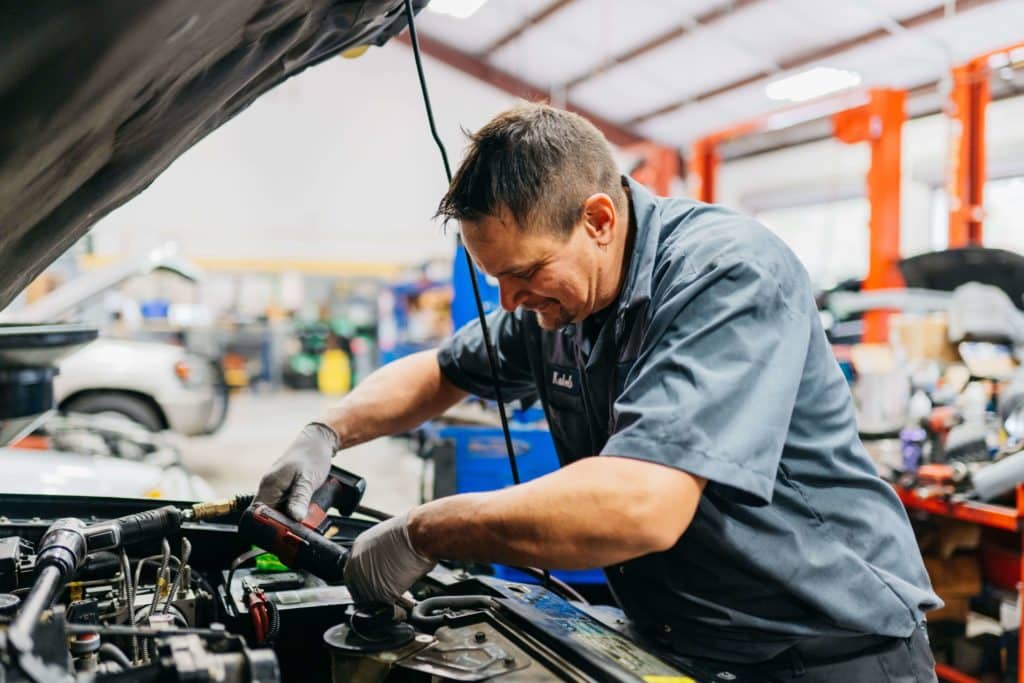All Categories
Featured
Commonly forgot, the timing belt plays a crucial function in keeping your engine integrated and running at peak efficiency. In this post, we'll discover the significance of timing belt substitute and why it's necessary to your engine's longevity.
What Is a Timing Belt and How Does It Work? The timing belt is a rubber or reinforced composite belt that connects the crankshaft to the camshaft in your engine. These two parts need to run in sync for the engine's shutoffs to shut and open at the correct times throughout the burning cycle. The timing belt regulates this synchronization, ensuring that the pistons and shutoffs don't collide.
![]()
As your engine runs, the timing belt continuously relocates to maintain these components straightened. Over time, the belt goes through deterioration from engine, rubbing, and warm vibrations. If it damages or becomes loose, the crankshaft and camshaft will certainly no longer be integrated, triggering engine misfires, loss of power, or, in the most awful case, extreme engine damage.
Why Timing Belt Replacement Is Vital. Avoids Serious Engine Damages: If the timing belt breaks while the engine is running, the pistons can hit the shutoffs, triggering curved valves, harmed pistons, or also a cracked engine block. This type of damages frequently calls for pricey and extensive repair services or an entire engine substitute. Replacing the timing belt before it fails is a simple and affordable means to prevent such tragic effects.
![]()
Ensures Smooth Engine Operation: A properly maintained timing belt assists maintain your engine running efficiently by preserving the appropriate synchronization between the crankshaft and camshaft. When the timing belt is worn out or stretched, the timing of the engine's valves may be off, triggering engine misfires, harsh idling, or delaying. Changing the timing belt at the advised period ensures that the engine runs as it was designed to, maximizing efficiency and effectiveness.
Saves You Money: Although replacing the timing belt may look like a substantial upfront expenditure, it's much much more cost effective than the cost of repairing or changing a damaged engine. The labor entailed in replacing the timing belt is much less expensive than fixing engine elements that are damaged due to a broken belt. Regular timing belt replacement can conserve you countless dollars in the future by protecting against engine failure and costly fixings.
Avoids Unexpected Break Downs: If your timing belt breaks suddenly while you're driving, it can leave you stranded and call for costly towing. In the most awful situations, it can create a full engine failing that provides your auto inoperable. By replacing the timing belt according to the maker's guidelines, you reduce the danger of unexpected breakdowns and guarantee your automobile continues to be reputable throughout daily driving and long trips.
When Should You Replace Your Timing Belt? The timing belt does not last permanently, and its substitute timeline can vary depending on the make and model of your car. The majority of manufacturers suggest replacing the timing belt every 60,000 to 100,000 miles. However, it is very important to consult your car's proprietor's guidebook for specific guidelines, as some engines may require earlier or later on substitutes.
If you're unsure about the problem of your timing belt, indicators that it might require changing include unusual engine sound (such as ticking or slapping sounds), difficulty starting the engine, or inadequate engine efficiency. If essential., a professional mechanic can inspect the timing belt for wear and tear and replace it.
Conclusion. The timing belt is a vital part of your automobile's engine, and its appropriate maintenance can conserve you from pricey repair work and engine damage. Frequently replacing the timing belt at the producer's advised periods assists make sure smooth engine operation, prevents unexpected malfunctions, and eventually lengthens the life of your engine. Do not disregard this critical upkeep job-- by remaining on top of timing belt substitute, you're buying the lasting health of your lorry.
What Is a Timing Belt and How Does It Work? The timing belt is a rubber or reinforced composite belt that connects the crankshaft to the camshaft in your engine. These two parts need to run in sync for the engine's shutoffs to shut and open at the correct times throughout the burning cycle. The timing belt regulates this synchronization, ensuring that the pistons and shutoffs don't collide.

As your engine runs, the timing belt continuously relocates to maintain these components straightened. Over time, the belt goes through deterioration from engine, rubbing, and warm vibrations. If it damages or becomes loose, the crankshaft and camshaft will certainly no longer be integrated, triggering engine misfires, loss of power, or, in the most awful case, extreme engine damage.
Why Timing Belt Replacement Is Vital. Avoids Serious Engine Damages: If the timing belt breaks while the engine is running, the pistons can hit the shutoffs, triggering curved valves, harmed pistons, or also a cracked engine block. This type of damages frequently calls for pricey and extensive repair services or an entire engine substitute. Replacing the timing belt before it fails is a simple and affordable means to prevent such tragic effects.

Ensures Smooth Engine Operation: A properly maintained timing belt assists maintain your engine running efficiently by preserving the appropriate synchronization between the crankshaft and camshaft. When the timing belt is worn out or stretched, the timing of the engine's valves may be off, triggering engine misfires, harsh idling, or delaying. Changing the timing belt at the advised period ensures that the engine runs as it was designed to, maximizing efficiency and effectiveness.
Saves You Money: Although replacing the timing belt may look like a substantial upfront expenditure, it's much much more cost effective than the cost of repairing or changing a damaged engine. The labor entailed in replacing the timing belt is much less expensive than fixing engine elements that are damaged due to a broken belt. Regular timing belt replacement can conserve you countless dollars in the future by protecting against engine failure and costly fixings.
Avoids Unexpected Break Downs: If your timing belt breaks suddenly while you're driving, it can leave you stranded and call for costly towing. In the most awful situations, it can create a full engine failing that provides your auto inoperable. By replacing the timing belt according to the maker's guidelines, you reduce the danger of unexpected breakdowns and guarantee your automobile continues to be reputable throughout daily driving and long trips.
When Should You Replace Your Timing Belt? The timing belt does not last permanently, and its substitute timeline can vary depending on the make and model of your car. The majority of manufacturers suggest replacing the timing belt every 60,000 to 100,000 miles. However, it is very important to consult your car's proprietor's guidebook for specific guidelines, as some engines may require earlier or later on substitutes.
If you're unsure about the problem of your timing belt, indicators that it might require changing include unusual engine sound (such as ticking or slapping sounds), difficulty starting the engine, or inadequate engine efficiency. If essential., a professional mechanic can inspect the timing belt for wear and tear and replace it.
Conclusion. The timing belt is a vital part of your automobile's engine, and its appropriate maintenance can conserve you from pricey repair work and engine damage. Frequently replacing the timing belt at the producer's advised periods assists make sure smooth engine operation, prevents unexpected malfunctions, and eventually lengthens the life of your engine. Do not disregard this critical upkeep job-- by remaining on top of timing belt substitute, you're buying the lasting health of your lorry.
Latest Posts
Discover Cut Costs on Car Maintenance with Montclare Auto Repair’s Special Deals
Published en
1 min read
Learn How WyHy Federal Credit Union Saves You Money on Borrowing and Banking
Published en
1 min read
Discover Cut Costs on Car Maintenance with Montclare Auto Repair’s Exclusive Deals
Published en
1 min read
More
Latest Posts
Discover Cut Costs on Car Maintenance with Montclare Auto Repair’s Special Deals
Published May 28, 25
1 min read
Learn How WyHy Federal Credit Union Saves You Money on Borrowing and Banking
Published May 23, 25
1 min read
Discover Cut Costs on Car Maintenance with Montclare Auto Repair’s Exclusive Deals
Published May 20, 25
1 min read